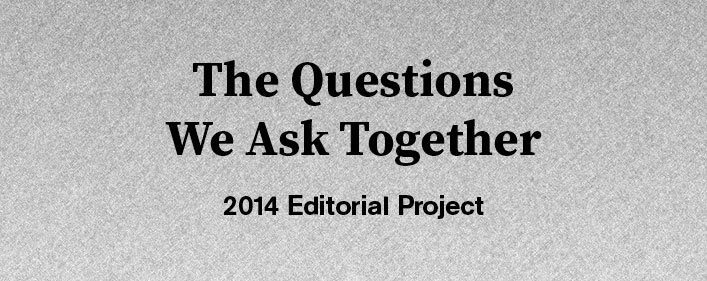Why does the institution feel so validating? How can I get away from that?
Photo: Christine Hill in The Volksboutique Small Business © Felix Oberhage, 2010.
“All artists are alike. They dream of doing something that’s more social, more collaborative, more real than art.” – Dan Graham
“True success is figuring out your life and career so you never have to be around jerks.” – John Waters
Let’s imagine these notes stemming from this question written on a). a paper restaurant napkin b). upscale hotel letterhead c). the back of my credit card statement. All incontestable institutions (and my patronage of any of them made viable given my dutiful employment within one).
—Select synonyms for “institution” + “validation” on thesaurus.com: association; establishment; foundation; fixture. Corroboration; recognition; authentication; evidence.
—Excerpt from an internet definition of “institution”: “People form an association to satisfy their needs”.
—All of the best options for an emancipated working environment come with their own sets of rules and constraints.
—The prolific research group Temporary Services has a sizable compilation entitled “Framing the Artists” in which media (mostly Hollywood) portrayals of “artists” show the largely frivolous, clichéd pursuits of sloppy social misfits replete with paint-spattered overalls with one half of the bib hanging down for dramatic effect. Few artist contemporaries of mine inhabit these roles. Perhaps we’re all more professionalized than the media would like to frame us, or than conventional interpretation of “freedom” would suggest. But who wants to work on some isolated art island fauxtopia where no rules are in play, no consequences in effect and no critical judgment being made?
—Work minus recognition or validation? Aren’t these just natural byproducts of substantive contribution?
—My father was a “company man” and my hometown a company town. I thought I must avoid it. So I aimed elsewhere and landed at an art school in an urban setting. An institution, it even has “Institute” in the name. It was one of the most liberating and empowering decisions I’d made at that stage and showed me what exploring potential is all about.
—Discussing artistic celebrity in 1990 at my art school (esteemed guest instructor from NYC): “You’ll find that celebrity compares poorly to true recognition by your peers.”
—I now teach at a renowned art institution. I personally find art students quite intrepid. I’m glad to have the opportunity to help shape their lives and discuss their plans––that is validating. Their presence here says they took their work and their talent seriously enough to join the official discourse, to go on record, to determine what their future version of “institution” will be and to help build it.
—Common student occurrence: the revelation that their idea/concept/project has been done in some form before, and their ensuing dismay. But this is teaching them which community they belong to, who their “people” are. A form of validation.
—My studio––Volksboutique––organizes itself around the tenets of an institutional model. Often by way of critique or satire of such.
I encourage my students to consider such a model for their future practice––it provides structure and commands discipline. It can be a protection, sure. But it can also be a device that holds their feet to the fire. Art minus a degree of rigor and some adherence to guidelines and constraints is frivolity. I’d like to feel there is more use value to artistic pursuits than that.
—What I personally want to get away from: non-essential tasks being dictated to me, rather than tasks of my own design being executed by me. This means I need less to avoid “the institution” and more to avoid email.
About the contributor: Christine Hill is the proprietor of the ongoing multidisciplinary project Volksboutique, a format for discussing industry, artistic economy and autonomy, transactional exchange, and value systems, operating out of a storefront in Berlin’s Prenzlauer Berg neighborhood.
Her projects examine concepts of valuation in consumer culture and re-invest discarded appurtenances with meaning and use. The subject of shopkeeping in various forms and the implementation of the over-the-counter transaction recur in her work. Since its inception in 1996, Volksboutique has authored and produced numerous installations serving as alternative business models, called Organizational Ventures, many commissioned by museums, public art institutions, biennials, and gallery spaces. Hill is a tenured professor and chair of the department Media, Trend & Public Appearance at the Bauhaus University in Weimar. You can visit volksboutique.org and find Volksboutique on Facebook.
